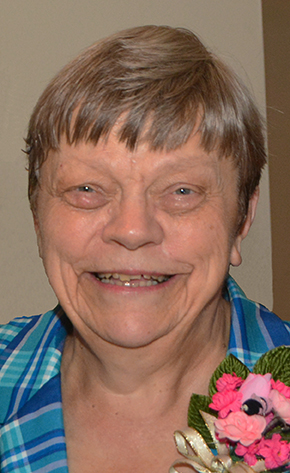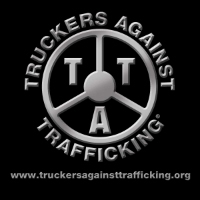“I am only one; but still I am one. I cannot do everything; but still I can do something; and because I cannot do everything, I will not refuse to do the something that I can do.”
Edward Everett Hale (3 April 1822 – 10 June 1909),
an American author and Unitarian clergyman.
“I am only one; but still I am one. I cannot do everything; but still I can do something; and because I cannot do everything, I will not refuse to do the something that I can do.” - Edward Everett Hale (3 April 1822 – 10 June 1909), an American author and Unitarian clergyman.
A survey of sisters across the Central Pacific Province sought to identify some of the core issues affecting society; human trafficking was identified as one of the top three issues. In response to the survey, sisters were encouraged to consider what they could do in their local communities. At the time, a solidarity reflection shared stories about human trafficking, identified resources that were available for educational purposes, advocacy and what advocacy might look like for sisters who were interested.

Sister Jeanne Wintenger
For Sister Jeanne Wingenter, there was a clear connection between the School Sisters of Notre Dame (SSND) mission and stopping human trafficking. In particular, Sister Jeanne would focus her efforts of labor trafficking as it related to human trafficking, children and consumerism.
“Looking closer at the topic of trafficking, as it relates to child labor and consumerism was an eye-opening experience,” said Sister Jeanne. “The survey and subsequent solidarity reflection really challenged us to look at our own lifestyles. ‘How could we help? Where could we help? What could we do differently?’ I really began to think about where I chose to buy my food. I decided to be more conscious of my purchases by choosing items at farmers’ markets or items known to be considered fair trade.”
There are approximately 152 million children, 5-17 years old in child labor, of which about 73 million are in hazardous labor that by its nature can have adverse effects on their health, safety, and moral development.
Child labor is defined as employment below the minimum age as established in national legislation, hazardous unpaid household services, and the worst forms of child labor: all forms of slavery or practices similar to slavery, such as the sale or trafficking of children, debt bondage and serfdom, or forced or compulsory labor; the use, procuring or offering of a child for prostitution, for the production of pornography or for pornographic purposes; the use, procuring or offering of a child for illicit activities; and work which, by its nature or the circumstances in which it is carried out, is likely to harm the health, safety or morals of children (Bureau of International Labor Affairs). The “List of Goods Produced by Child Labor or Forced Labor,” created by the Bureau of International Labor Affairs, is for anyone interested in knowing how his or her consumer purchases are created for sale. Through her research, Sister Jeanne could see how easy it was to become an unwilling participant in labor trafficking. Education became the key to her consumer power so that what she purchased would not harm children.
 While looking into labor trafficking and children, Sister Jeanne came across Truckers Against Trafficking (TAT), a national organization leading the fight against human trafficking through extensive partnerships with the trucking industry. The organization recognizes that truckers are in a unique position to be the eyes and ears of our country’s roadways. Each year, TAT trains thousands of truckers, rest stop employees and law enforcement officials how to recognize trafficking and intervene by safely calling a national hotline that alerts law enforcement for response. TAT also encourages people to share information and pamphlets at rest stops to educate more drivers. According to TAT, almost half of the cases reported by truckers in 2017, 48.5 percent involved minors.
While looking into labor trafficking and children, Sister Jeanne came across Truckers Against Trafficking (TAT), a national organization leading the fight against human trafficking through extensive partnerships with the trucking industry. The organization recognizes that truckers are in a unique position to be the eyes and ears of our country’s roadways. Each year, TAT trains thousands of truckers, rest stop employees and law enforcement officials how to recognize trafficking and intervene by safely calling a national hotline that alerts law enforcement for response. TAT also encourages people to share information and pamphlets at rest stops to educate more drivers. According to TAT, almost half of the cases reported by truckers in 2017, 48.5 percent involved minors.
“Even if you are unable to take an active part in the fight to stop trafficking consider how you can educate those in your family on trafficking,” said Sister Jeanne. “Do you speak up when the conversation is raised? Can you hand out information or pamphlets? I look at problems this way, instead of trying to solve the entire problem, what is that one thing I can do today?”
Learn more about the efforts of Truckers Against Trafficking.